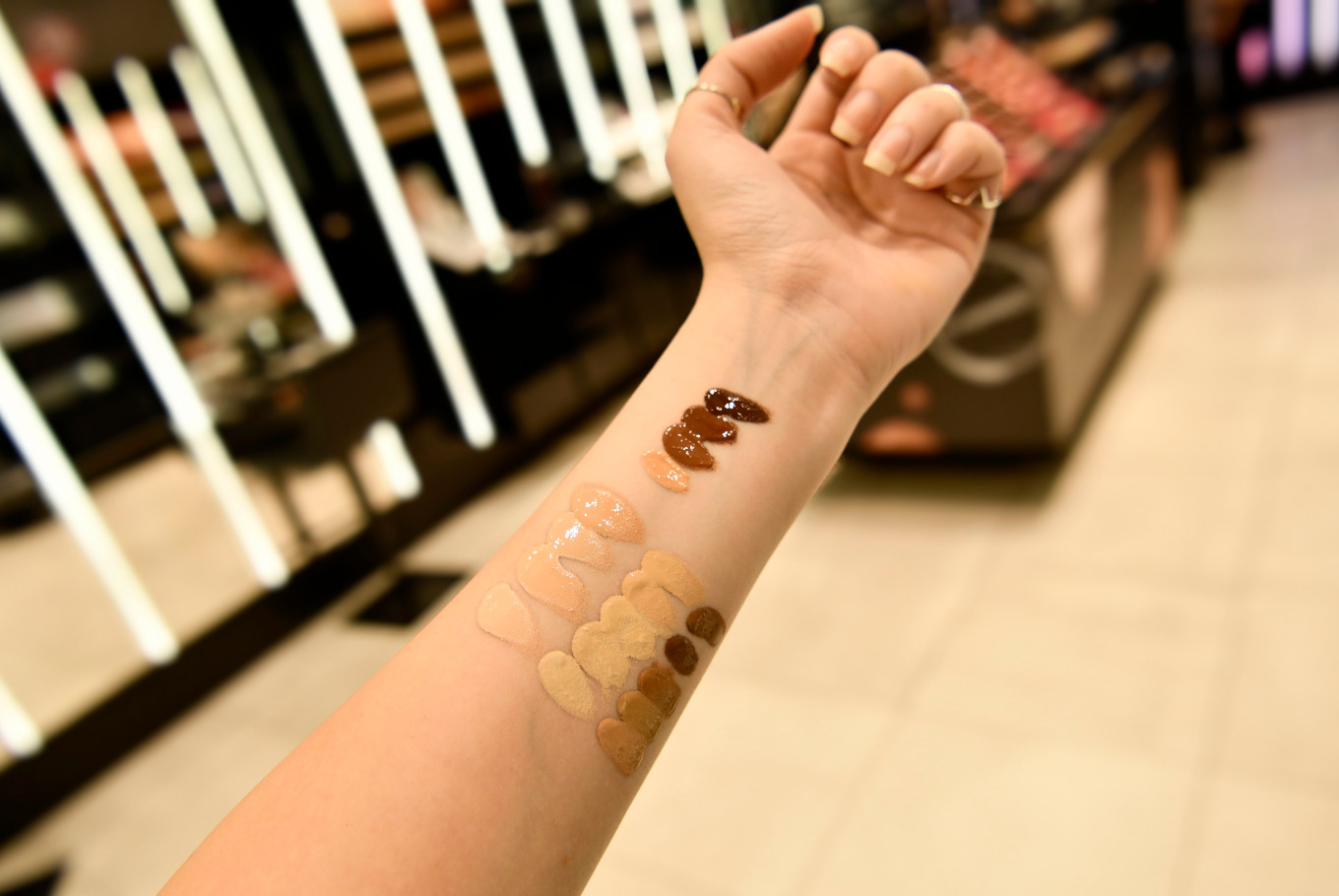Popular Reads
Top Results
Can't find what you're looking for?
View all search resultsPopular Reads
Top Results
Can't find what you're looking for?
View all search resultsInclusive local makeup products like 'needle in haystack'
According to beauty technology company PT Social Bella co-founder and CMO Chrisanti Indiana, customers’ positive responses and local brands’ willingness to innovate could help improves inclusivity in the country's beauty industry.
Change text size
Gift Premium Articles
to Anyone
F
or Jakarta-based student Benedicta “Dita” Sari Vita Suwanto, finding foundation makeup that blends perfectly with her tanned skin tone, locally referred to as sawo matang, is like looking for a needle in a haystack, especially when it comes to local brands.
After years of searching, her choice fell on the darkest shade of Rosé All Day’s The Realest Lightweight Foundation, though that still didn’t satisfy her.
“When I go outside, sometimes I have to add more cream contour or bronzer, so my face won’t look flat or pale,” Dita recently told The Jakarta Post by phone.
According to Dita, most local brands only cater to warm to neutral undertones -- the color from underneath the surface of your skin that affects your overall hue; available in warm, neutral and cool options.
“They don’t provide options for my skin tone; [namely for] neutral to cool undertones,” she said.
Beauty influencer Lifni Sanders, who has been actively promoting shade inclusivity and a diverse range of foundation shades among local brands, agreed that Indonesian beauty companies often featured a limited range of foundations. She also noted a lack of fairness.
“If a brand releases six shades [of foundation], five of them are for medium to light skin tones, while there’s only one for tanned skin. That’s it. People with tanned to darker skin tones have fewer options – or even none at all,” Lifni told the Post on July 29. “If a brand can’t launch 10, 15 or 20 shades, at least make them equally [available].”
Lifni, who is of Papuan descent, said if a brand was only able to provide a limited shade range of foundations, they should be equally available for light, medium, tanned and darker complexions.
Local brand Dear Me Beauty (DMB) was recently criticized regarding the issue after promoting its latest concealer products alongside tanned and dark-skinned emojis on the TikTok platform. "Come on diversity give us nothing [...] using tanned and dark-skin emojis without actually having medium/dark shades???" said a Twitter user who shared the screenshot of the post.
come on diversity give us ~nothing~@livjunkie kak lip your thoughts on DMB social media team doing this~ using Tan and dark skin mojis without actually having medium/dark shades??? pic.twitter.com/oHNujW7cJN
— yaribu spoiler (@KIRIBAKUSHONEN) July 24, 2020
In the comment section, two TikTok users could be seen inquiring about the products’ darker shades, to which the brand merely responded: “You can use the available shades” and “Have you tried our medium plus shades?”
Habira, one of the netizens who brought the topic to Twitter, said she followed DMB’s TikTok account and often criticized its limited shades range. “I would never have thought that its customer care staff would give such a response. Of course, I’m appalled, shocked and disappointed."
The brand immediately apologized on its Twitter and Instagram accounts, expressing its regret over the “insensitive and unpleasant comments”. It stated that it had improved its training and management to prevent similar incidents.
“We’re very grateful for all criticism and suggestions from beauty enthusiasts. It’s truly a lesson and reminder for us to keep getting better,” added Dear Me Beauty CEO Nikita Wiradiputri in an email to the Post.
Nikita said the brand was planning on launching three new foundation shades for tanned to darker skin tones at the end of this year.
Key to inclusivity
According to beauty technology company PT Social Bella cofounder and CMO Chrisanti Indiana, customers’ positive responses and local brands’ willingness to innovate could help improve inclusivity in the country's beauty industry.
“We see it as something that has to be embraced by local brands in the future as Indonesian customers are getting smarter in choosing products and understanding their own needs,” Chrisanti said during a press conference on Aug. 4.
Launched in 2010, Make Over is one of a few local brands that cater to tanned to darker skin tones.
A representative of the brand said the challenge of producing complexion products for lighter, medium or darker shades was the same, and that the development could take years. However, based on consumer demand, its products for medium complexion are said to be the most popular ones, followed by lighter and darker complexions.
Lifni said the lack of people of color representations and the portrayal of beauty as synonymous with fair complexions and straight hair in the media might have influenced demand for darker foundations in Indonesia.
“All this time, people have been told that lighter skin equals beauty, so they’re looking for products that have a lightening effect,” said Lifni.
According to the ZAP Beauty Index 2020, a survey by beauty clinic ZAP involving 6,460 respondents between 13 and 65 years of age in Indonesia, 69.6 percent said they indeed wanted their skincare and beauty products to have a lightening effect. (kes)











